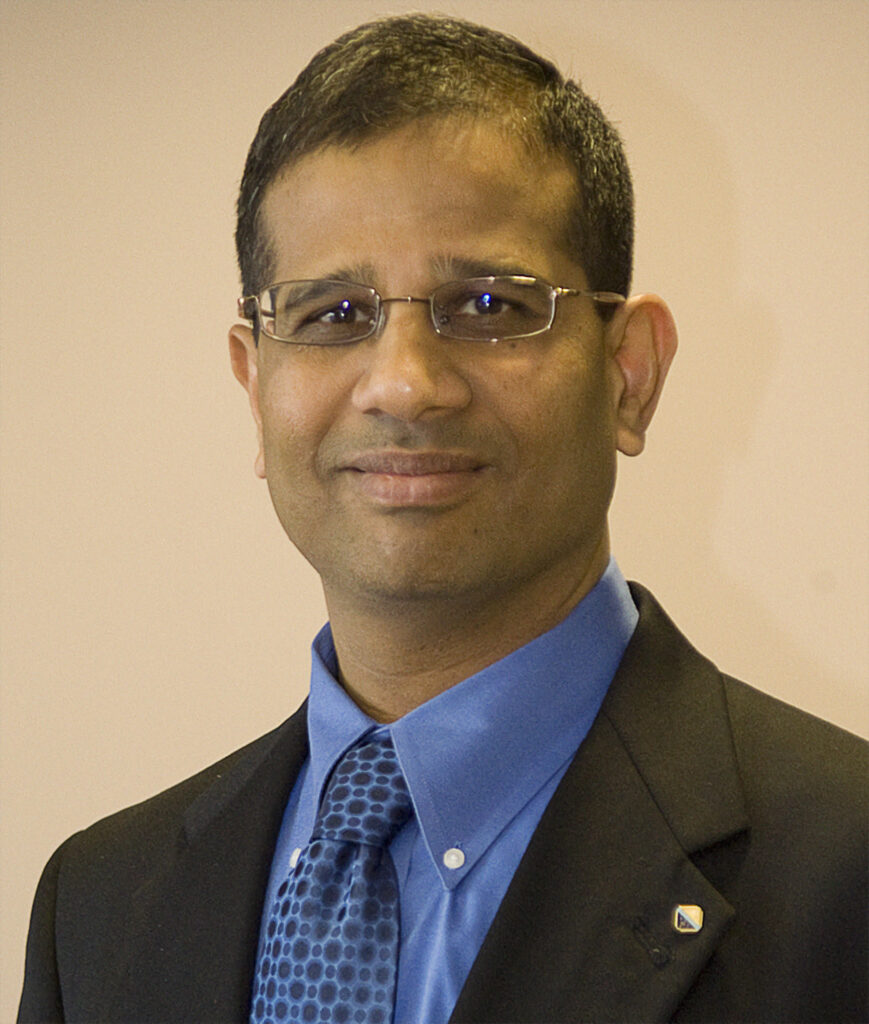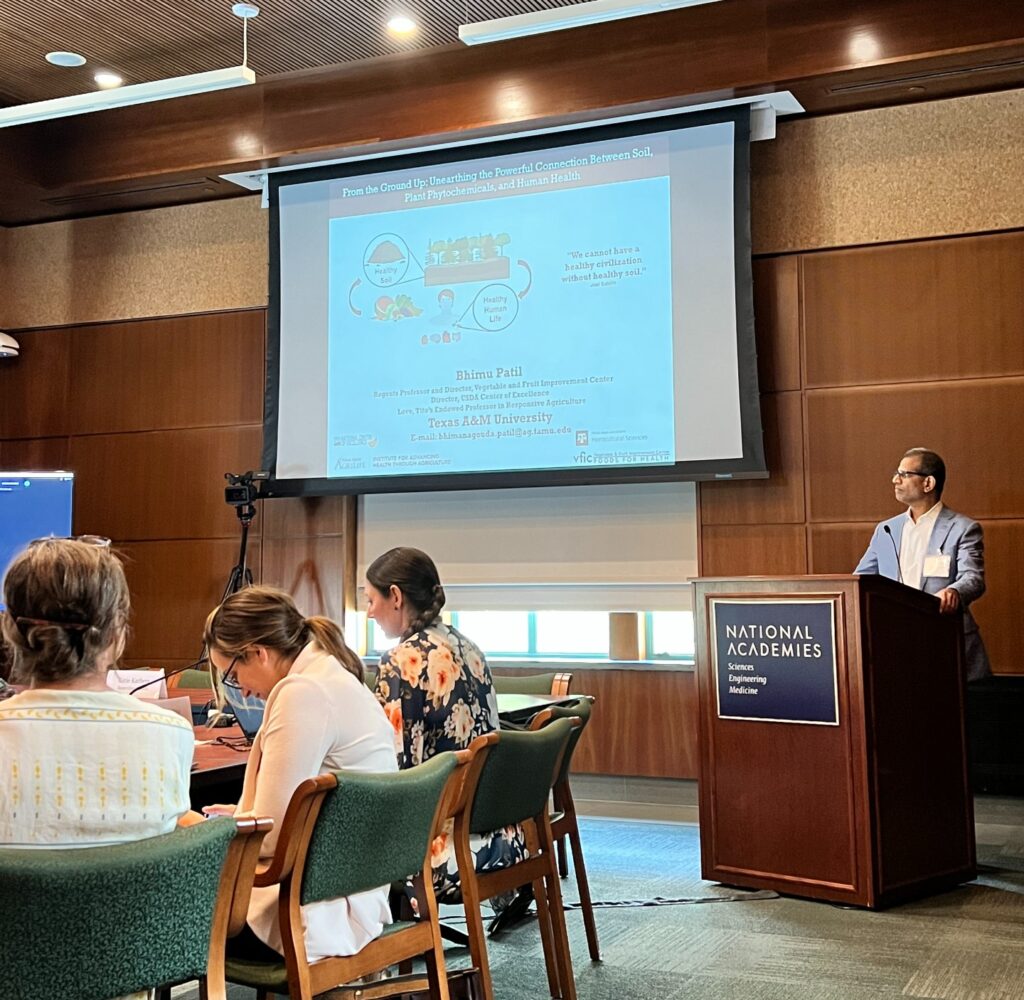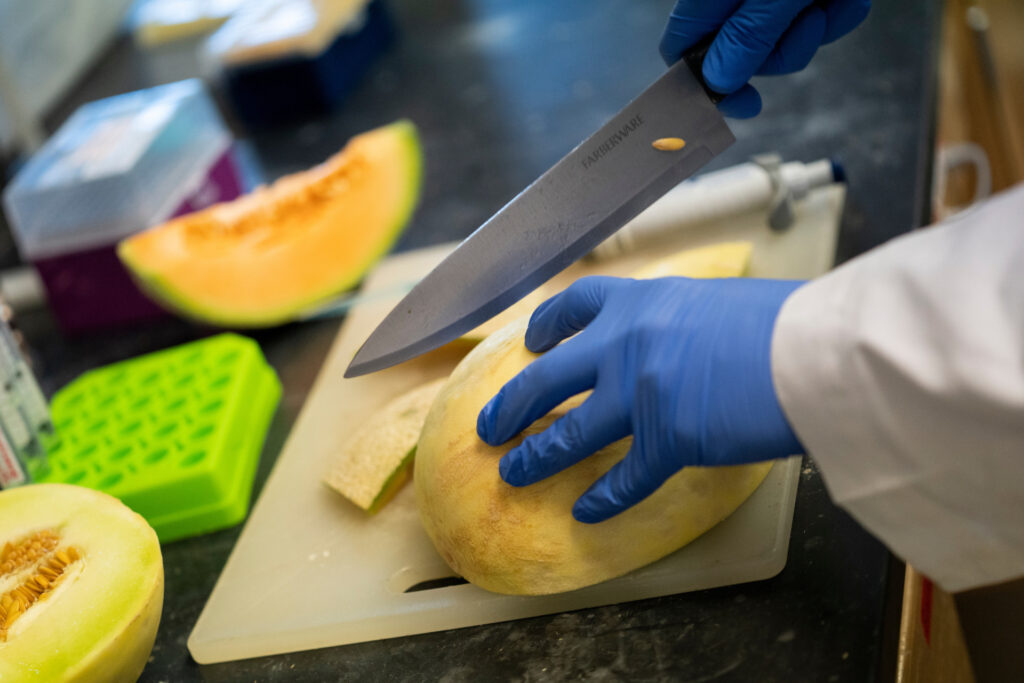Patil invited by National Academies to join panel of thought leaders
Experts will address connection between soil, bioactives and human health
Bhimu Patil, Ph.D., a Texas A&M AgriLife Research Regents Professor, has been invited by the National Academies of Sciences, Engineering and Medicine to join a select panel of distinguished thought leaders addressing the connections between soil health and human well-being.

Patil is a professor in the Texas A&M College of Agriculture and Life Sciences Department of Horticultural Sciences, the director of the Vegetable and Fruit Improvement Center, and was recently named endowed professor for the Love, Tito’s Professorship in Responsive Agriculture.
His presentation will be part of a comprehensive report outlining the possibilities of leveraging microbial resources within the soil to amplify human health benefits. The report will be compiled by a prestigious committee appointed by the National Academies to review the interconnections of soil and human health.
“Dr. Patil stands as a prominent public scientist among those who will lend their expertise,” said Amit Dhingra, Ph.D., head of the Department of Horticultural Sciences. “He has made transformative contributions relating to the intersection of nutrition, agriculture and human health. Dr. Patil also has been a leader in the area of foods for health, taking a holistic approach ranging from consumer preferences to the dynamics of farm practices. He leads from the front in furthering our departmental mission, which is focused on sustainability, wellness and food security.”
The importance the soil microbiome
To help inform the committee, this summer Patil developed and presented “From the Ground Up: Unearthing the Powerful Connection Between Soil, Plant Phytochemicals and Human Health,” which addressed the correlation between soil composition and plant-derived bioactives, and their collective impact on human well-being. The presentation, which was given in Washington, D.C., encompassed several key aspects outlined in the National Academies strategic framework.

“Some of these included the use of plant bioactives to the harvesting and processing practices that influence the bioavailability of essential micronutrients and phytochemicals in foods,” Patil said.
He added that the soil microbiome, a rich tapestry of diverse microorganisms within the earth, plays a pivotal role in shaping agricultural productivity, the nutrient density of crops and the potential for groundbreaking advances in medical science.
“The intricate interplay between the soil microbiome and human health is a complex landscape, rife with both possibilities and challenges,” he said.
Focused in the future
The focus of the committee will be the exploration of soil microbial compounds and their potential applications in human health.
“Plant bioactives, another focal point of our discourse, have emerged as essential contributors to the health-enhancing potential of soil,” Patil said.
He said the comprehensive report the committee is tasked with producing will “encapsulate key findings, bridge critical knowledge gaps and illuminate promising research directions.” It is expected to ultimately offer a roadmap for unlocking the untapped potential of the soil microbiome to enrich human health.
Patil said as committee activities and proceedings continue to unfold, he hopes to provide pioneering insights and useful contributions toward a future where “soil, plant and human health are inextricably intertwined for the betterment of society.”
About Patil’s research and contributions

Patil’s research centers on the impact of fruits and vegetables on human health, with a particular focus on harvesting and post-harvesting practices that influence quality. His work integrates various facets of fruit and vegetable production, including breeding, agronomy, health benefits, quality assurance and food safety, emphasizing consumption as a central theme.
Patil has a portfolio of over 242 peer-reviewed papers, 120 invited presentations, and 24 plenary or keynote addresses. His work has influenced global initiatives, including those in Australia, Brazil, Canada, China, Chile, Czech Republic, France, India, Israel, the Netherlands, New Zealand, Portugal, South Korea, Sweden, Spain and the U.S.
He has received 19 prestigious awards, earning Fellow distinctions from the American Chemical Society, American Society for Horticultural Sciences, Brazilian Horticulture Society and Indian Horticulture Society. Patil is a Texas A&M AgriLife Senior Faculty Fellow.
Patil also co-founded the Human Health Effects of Fruit and Vegetables international symposium, also known has FAV Health, and has chaired or co-chaired some 25 symposia during his career.
Patil’s pioneering initiatives and systems-wide approach to agriculture and its impact on human health have received grants totaling $27 million, with $17.4 million directly supporting those projects.


